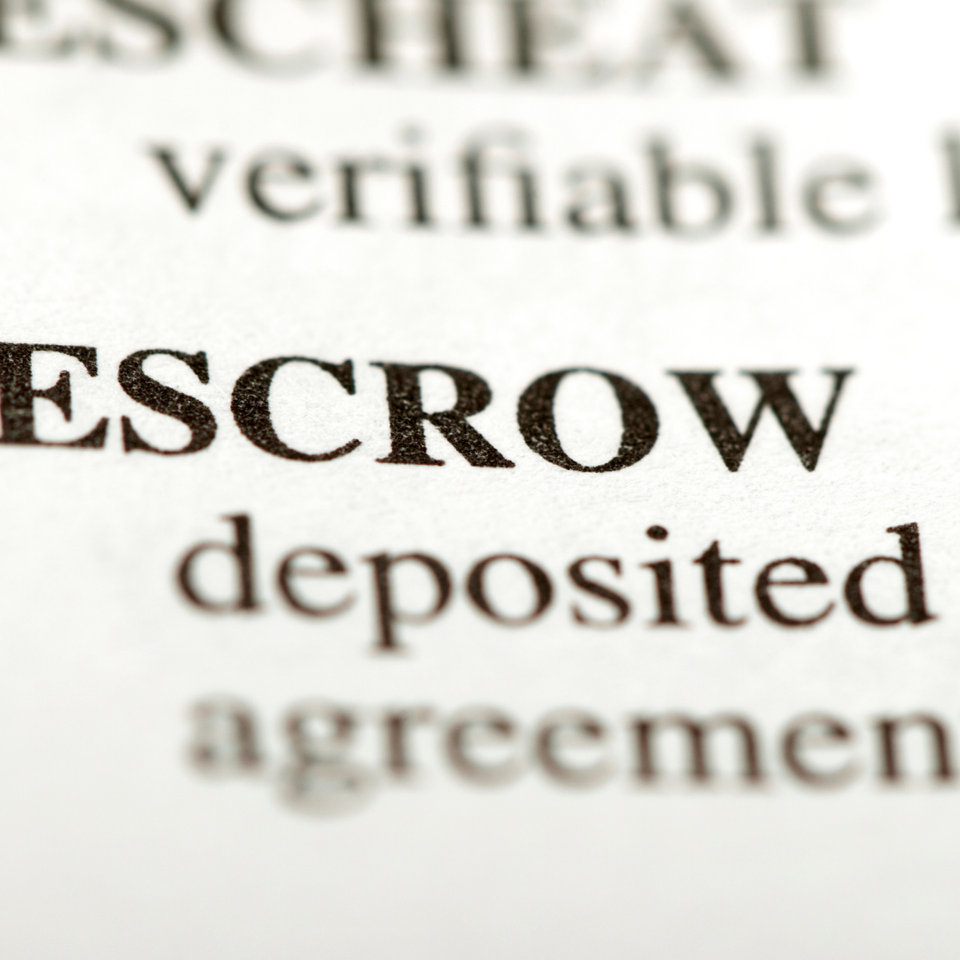Why is my escrow account negative?

Short Answer:
Your escrow account might be negative due to increased property taxes or homeonwer's insurance premiums, an underestimation during escrow analysis, unexpected payments, or timing issues with payments.
Longer Answer:
A few days ago, I get a call from a past client who is upset. They recieved notification from their mortgage servicer that their escrow account is negative. The client wanted to know why this happened if they are making their mortgage payments on time.
Many homeowners encounter this situation in the life of their mortgage. Understanding the reasons behind it can help you take the necessary steps to address it.
What is an Escrow Account?
Before diving into why your escrow account might be negative, it's essential to understand what an escrow account is. When you have a mortgage, your lender often sets up an escrow account to pay for property taxes and homeowners insurance on your behalf. Each month, you pay a portion of these costs along with your mortgage payment, and the funds are held in the escrow account until the bills are due.
Why might there be a Negative Escrow Balance?
- Increased Property Taxes: One of th emost common reasons for a negative escrow balances is an increase in property taxes. Maybe the property before you had a homeowner's savings (senior citzens discount) that you don't qualify for. Similarly, the government increased your tax assessment which increased your tax bill dramatically. Happens often after you purchase a home - the governement increases the tax assessment to aline with the price you paid for the house.
- Insurance Premiums: Like property taxes, maybe the cost of your homeowner's insurance increased. If these costs go up and your monthly escrow payments haven't been adjusted accordingly, your account may not have enough funds to cover the bills.
- Escrow Analysis Adjustments: Lenders typically perform an escrow analysis once a year to ensure that your monthly payments are sufficient to cover the upcoming year's expenses. If they underestimated the costs, your account might go negative when the bills are paid.
- Unexpected Payments: Sometimes, unexpected payments, such as a supplemental tax bill, can cause your escrow account to dip into the negative. These are usually one-time occurrences but can impact your balance significantly.
- Payment Timing: If your lender pays your taxes or insurance before your monthly payment is credited to your escrow account, it might temporarily show a negative balance. This is often resolved once your payment is processed.
Important to understand, your mortgage servicer will always pay the bill that is due. This will put your account in the negative, but ensure no late payments on your real estate taxes and homeowner's insurance.
What to Do Next?
If you find your escrow account is negative, here are some steps you can take:
- Review Your Statement: Carefully review your escrow statement to understand the charges and payments. Look for any discrepancies or unexpected increases in taxes or insurance.
- Contact Your Mortgage Servicer: Reach out to your mortgage servicer for clarification. They can explain why your account is negative and discuss options for resolving the shortfall.
- Adjust Your Payments: Your mortgage servicer may adjust your monthly escrow payments to cover the deficit and prevent future shortages. This might mean an increase in your mortgage payment.
- Make a Lump Sum Payment: If possible, you can make a one-time payment to cover the negative balance, which can help avoid higher monthly payments.
Conclusion
A negative escrow balance can be unsettling, but understanding the reasons behind it and taking proactive steps can help you manage the situation effectively. Regularly reviewing your annual real estate tax and homeowner's insurance bills can help prepare you for any shortage in your escrow account. Unfortunatly, a shortage in your escrow account may occur during the life of your mortgage, but it is not the end of the world.
If you have other questions about mortgage escrow accounts, please reach out at teamjd@mainstreethl.com
These blogs are for informational purposes only. Make sure you understand the features associated with the loan program you choose, and that it meets your unique financial needs. Subject to Debt-to-Income and Underwriting requirements. This is not a credit decision or a commitment to lend. Eligibility is subject to the completion of an application and verification of home ownership, occupancy, title, income, employment, credit, home value, collateral, and underwriting requirements. Not all programs are available in all areas. Offers may vary and are subject to change at any time without notice. Should you have any questions about the information provided, please contact me.
Find more answers to mortgage & real estate questions at www.jdanswersquestions.com
DMV Mortgage


